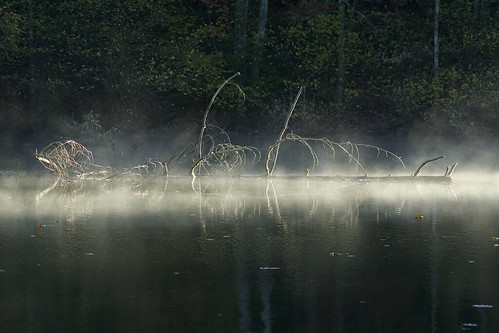fugacious /fyoo-GAY-shəs/. adjective. Inclined to flee. Fleeting, transient, evanescent. In botany, things that last for a short time, usually leaves. From Latin fugere (flee).
“As I climbed the Cliffs, when I jarred the foliage, I perceived an exquisite perfume which I could not trace to its source. Ah, those fugacious universal fragrances of the meadows and woods! Odors rightly mingled! (Henry David Thoreau)
“At a bus stop bench she sat him down. ‘Whatever is happening between us is fugacious,’ she told him, knowing he would understand. It was Saturday, and fugacioushad been Thursday’s word.” (Vendela Vida)
“The glowing ember in the furnace, a red sun dying before my eyes, turning fugacious, turning to gas, in my memory lives on, dies each night in its beauty.” (Bill Green)
“They seem to enjoy their new-born freedom, and flutter in the March wind like tethered butterflies. Their happy day, however, is soon over; their fugacious petals shrivel in three or four days. The leaves are rush-like, ribbed, and sheathed.” (John Wood)
“You are a senseless frivoler, a fugacious gid, an infamous hoddydoddy; you are a man with the hoe with the emptiness of ages in your face; you are a brother to the ox, with all the dundering niziness of a plain, ordinary buzzard added to your shallow-brained asininity.” (John Kendrick Bangs)
“Restless, shifting, fugacious as time itself is a certain vast bulk of the population of the red brick district of the lower West Side.” (O. Henry)
“The wealth acquired by speculation and plunder, is fugacious in its nature, and fills society with the spirit of gambling. The moderate and sure income of husbandry begets permanent improvement, quiet life, and orderly conduct, both public and private.” (Thomas Jefferson)
“But the copyright should remain mine—a valuable concession and consideration!—and I should receive suitable remuneration when the magazine”turned the corner.” Ah, that fugacious corner which, always nearing, is rarely reached, and never by any chance turned! How often has it lured the novice and tempted even the needy veteran victim!” (William Mackay)
“Don Fernando listened with rapt attention. He had no longer a doubt that this mysterious and fugacious island must be the same with that of the Seven Cities; and that there must be some supernatural influence connected with it, that had operated upon himself, and made the events of a night occupy the space of a century.” (Washington Irving)
“His account of Dr. Whittle was prodigious-of his occult sagacity, of his eyes prominent and wild like a hare’s, fugacious of followers, of the arts by which he had left the City to lure the patients that he wanted after him to the West End, of the ounce of tea that he purchased by stratagem as an unusual treat to his guest, and of the narrow winding staircase, from the height of which he contemplated in security the imaginary approach of duns.” (William Hazlitt)




